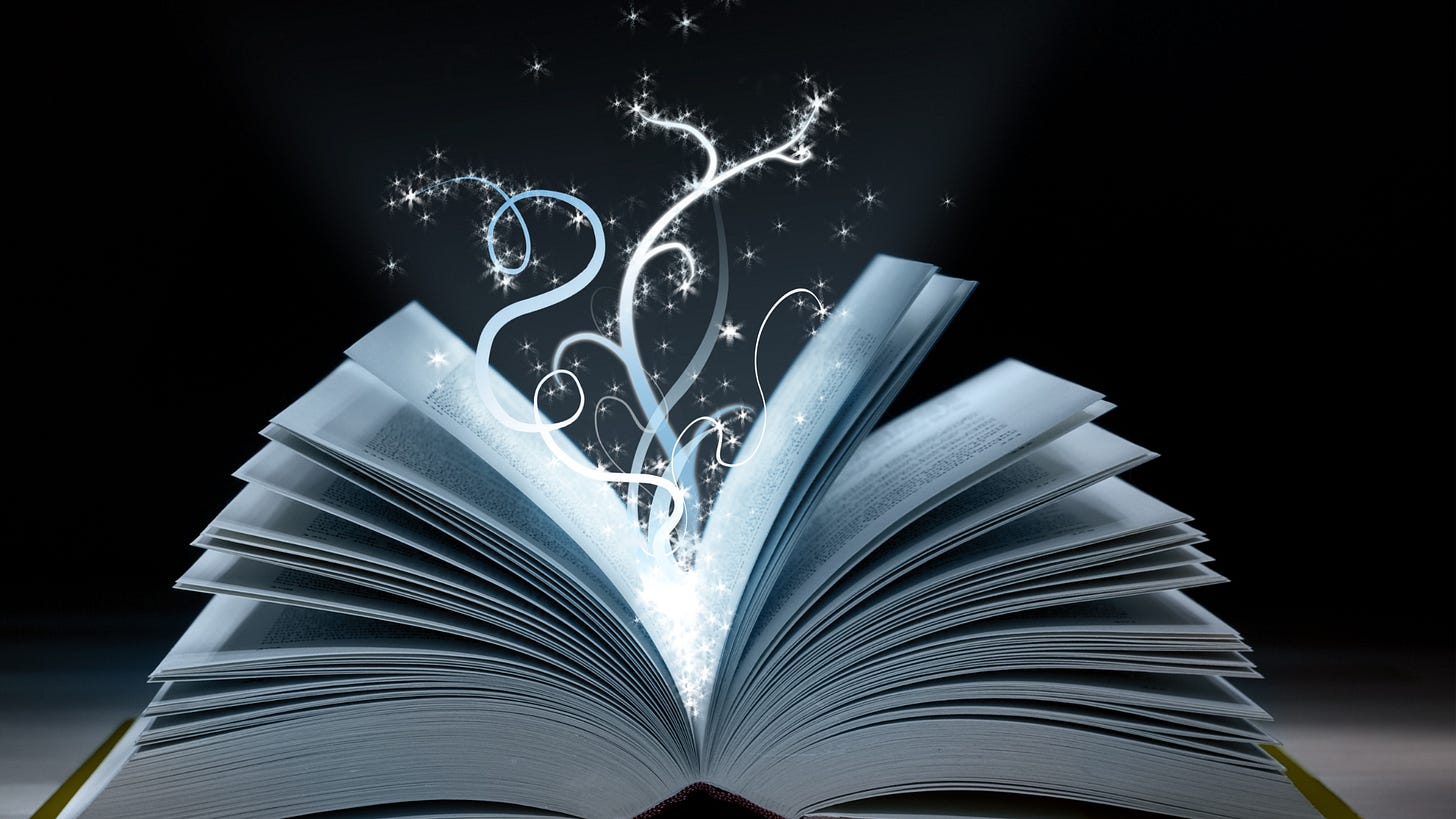Getting Off by Listening to Smut: The Intriguing Psychology of Narratophilia
The world of erotica just got a whole lot juicer in the best way.
Narratophilia is a term not widely known. It refers to sexual interest and arousal from telling, listening to, and/or reading obscene words or stories. It is not a “condition,” but a fetish. Clearly, the nerds and bookworks are far kinkier than you might think!
As a prior literature and creative writing professor, the term is not new to me, but one that holds a special place in my heart as I too have a deep-rooted narratophilia fetish. As a nerd who also enjoys learning the hows and whys around a particular fetish, as well as why it often felt like I was alone in my need for the filthiest smut I could find to the point that I became an erotica writer myself.
Believe it or not, understanding narratophilia sheds light on an aspect of human psychology that holds deep roots in our evolutionary past and plays a significant role in shaping our understanding of the world and ourselves. By looking at narratophilia by exploring its origins, manifestations, and connection to human sexuality, we gain a deeper insight into the love for erotica.
The image above shows an ancient hieroglyphic from a wall in Egypt.
Origins of Narratophilia:
The human fascination with stories can be traced back to our earliest ancestors who used storytelling as a means of communication, passing down knowledge, culture, and traditions from one generation to the next. In prehistoric times, sitting around a campfire, sharing tales of hunting exploits or mythical creatures served not only as entertainment but also as a way to strengthen social bonds and foster a sense of community. Likewise, sex was a huge part of the ancient storytellers. From Japan in the 1600s to the Ancient Greeks, depictions and stories of conquests and exploits were etched into history through both writing and drawings.
As societies evolved, storytelling continued to hold a central place in human culture. From ancient myths and religious texts to epic poems and oral histories, narratives have played a pivotal role in shaping collective identities and belief systems. The power of storytelling to evoke emotion, and passion, arouse, inspire action, and provoke thought has been recognized by philosophers, psychologists, and scholars throughout history.
Understanding Narratophilia:
Narratophilia can manifest in various forms, ranging from simple enjoyment of erotic novels, films, and plays to a compulsive need to constantly consume explicit stories through books, podcasts, television shows, and social media. Individuals who exhibit narratophilic tendencies often find themselves deeply immersed in fictional worlds, empathizing with characters, and experiencing a range of emotions as they follow the twists and turns of a narrative arc through sexual arousal.
Psychologically, narratophilia can be seen as a natural extension of our innate curiosity about the human experience. Stories provide a window into different perspectives, allowing us to explore unfamiliar cultures, navigate complex emotions, and confront moral dilemmas in a safe and controlled environment. This flows into sexual desires and fantasies as well. By immersing ourselves in the lives of fictional characters, we gain insights into our own desires, fears, and aspirations, fostering empathy and self-awareness in the process.
The Appeal of Narratives:
It’s no secret that narratives offer a sense of escapism, allowing us to temporarily leave behind the stresses and pressures of everyday life and enter into a world of fantasy and imagination. In a world filled with uncertainty and chaos, stories provide a sense of order and coherence, offering a temporary reprieve from the complexities of reality. For some, the world of erotica gives them a place to safely explore their kinks and fetishes, whether in audio or book form. But many narratophiles also enjoy/need verbal narration as well. This might come in the form of listening (or them describing) to their partner in explicit detail what they like/desire or narrate a sexual act while its happening. The dirty talk and imagery adds to their arousal and produces a fully immersive experience.
The Role of Narratives in Identity Formation:
Narratives not only shape our understanding of the world but also play a crucial role in the formation of individual identity. From childhood, we are exposed to a multitude of stories that shape our beliefs, values, and sense of self. Whether it's the fairy tales we hear as children or the novels we read as adolescents, the stories we encounter leave a lasting imprint on our psyche, influencing the way we perceive ourselves and others.
For many individuals, the process of identity formation involves constructing a personal narrative that gives meaning and coherence to their lives. By weaving together the various experiences, relationships, and challenges they encounter, individuals create a narrative framework through which they make sense of their past, navigate their present, and envision their future. In this sense, narratophilia can be seen as a fundamental aspect of human development, driving the ongoing quest for self-discovery and self-expression.
The Connection to Human Sexuality:
Human sexuality, from a psychological perspective, is intricately intertwined with narratophilia. Stories, particularly those involving romance, desire, and intimacy, have long served as a vehicle for exploring and expressing our sexual fantasies and desires. Erotic literature, for example, has been a popular form of storytelling for centuries, providing a safe and titillating space for individuals to explore their sexual imaginations.
Moreover, narratives play a significant role in shaping our sexual identities and behaviors. From the romantic ideals portrayed in fairy tales to the explicit scenes depicted in adult films, the stories we encounter influence our perceptions of love, intimacy, and sexuality. For some individuals, narratophilia may manifest as a fascination with erotica or a desire to explore diverse sexual experiences vicariously through stories.
Furthermore, narratives can serve as a means of sexual expression and communication within relationships. Couples may engage in erotic storytelling as a way to enhance intimacy, explore shared fantasies, and deepen emotional connection. By sharing fantasies and desires through storytelling, partners can create a shared narrative of their sexual relationship, fostering a sense of closeness and mutual understanding.
Narratophilia offers a fascinating lens through which to explore the complex interplay between psychology, culture, and storytelling. From its origins in our evolutionary past to its manifestations in modern society, the love for narratives reflects our innate curiosity about the human experience and our ongoing quest for meaning, connection, and sexual fulfillment. By understanding the psychology of narratophilia and its connection to human sexuality, we gain insights into the profound impact that stories have on our sexual identities, desires, and relationships. As we continue to navigate the ever-changing landscape of storytelling in the digital age, it is essential to recognize the role that narratives play in shaping our sexual experiences and to approach them with curiosity, openness, and critical reflection.
Do you find yourself to be a narratophile? What is your favorite smutty read/audio?










I now have a name to a love/addiction I've had for sooooooooooooo freakin' long!